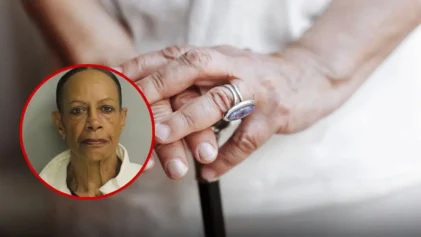The Cleveland suburb of Garfield Heights, Ohio, has agreed to pay $80,000 to settle a federal civil rights lawsuit brought by a man who claimed he was subjected to police brutality after mocking and laughing at officers.
The settlement not only calls on the city to pay up, but also to “provide mandatory and adequate training to all active-duty police officers” in regard to the First Amendment and other constitutional rights, local station WKYC reported.

Garfield Heights Police are accused of confronting Robert Spencer about “threats” he allegedly made to them as they drove by. (Image courtesy of WOIO)
The lawsuit stems from a July 2017 incident in which resident Robert Spencer says he was roughed up by police for simply “laughing while Black.” Spencer said he was outside with a group of neighborhood children when a Garfield Heights police car drove past. Officers saw Spencer’s laughter, stopped, then confronted him, the complaint alleges.
The suit further claims that officers then allegedly attacked Spencer when he insulted them, arrested him and beat him at the police station.
Spencer later would be acquitted by a jury on charges that included assault and aggravated menacing stemming from the arrest
Lawyers wrote that officers made their motivations clear on videotape: to punish Spencer for his speech.
“All you had to do was shut the %#$ up …,” one officer is heard saying. “We weren’t even going to arrest you.” Cops told Spencer that “saying stuff to us when we drive by” justified investigation, arrest, detention, beatings, and prosecution — all of which he might have avoided had he “[kept] his mouth shut when we came out.”
Spencer’s attorney, Patrick Kabat, lauded the outcome of the case.
“We commend Garfield Heights for promptly committing to addressing the issues Mr. Spencer’s ordeal exposed,” Kabat said. “Our constitutional rights don’t enforce themselves, and violations can never be undone, but adequate training is a vital first step towards ensuring that citizens’ rights will not be ignored by those sworn to protect.”


